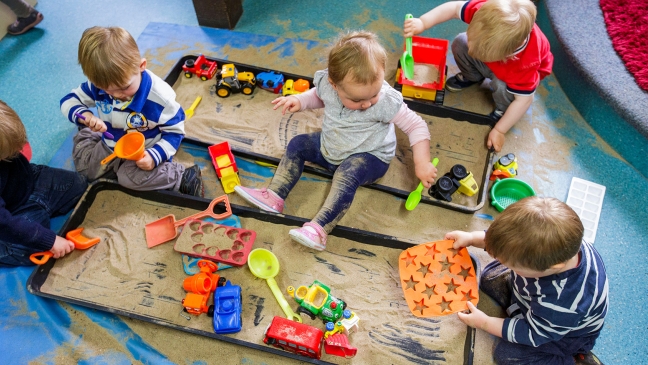I have been reading about plans for education with interest since the change of government.
One in particular recently caught my attention: Labour’s aim to develop more than 3,000 new nursery classes across England to open up access to childcare for families. It plans to convert spare school classrooms into high-quality nursery spaces.
While I am a bit sceptical about there being so many unused spaces in schools (in my school I’m lucky to find an unoccupied cupboard, let alone a spare classroom), I am, nevertheless, heartened by the ambition for early years development within schools.
This is a subject close to my heart. I have been involved in a few similar projects in which an existing preschool has been restructured to become part of a school (sharing an Ofsted registration).
I found these experiences to be really successful, particularly from a teaching and learning perspective.
More on the early years:
There are potential obstacles to overcome at the planning stage (such as lack of funding, staffing or facilities) but the benefits for us as teachers, particularly in Reception, can be fantastic.
At my school approximately half of the cohort join from our own preschool. The difference between the two groups joining is noticeable.
The children from our preschool outperform their peers on almost all levels: they show greater competency in baseline tasks, better listening skills, more independence and more overall competence in many areas of curriculum, especially personal, social and emotional development (PSED).
They are secure with phase 1 phonics, particularly oral blending and segmenting (which is a great start for reading).
They are also much more confident. In the first couple of years we questioned whether this was coincidental. However, it has now been a trend for several years since we moved to a teacher-led preschool model.
EYFS: the benefits of school-based nurseries
The model of school-based nurseries also has a positive impact on teaching. It is fantastic to share EYFS experience among a wider team that isn’t limited to Reception. We have joined together for numerous training days and twilight sessions. We also work together to monitor the statutory requirements of EYFS practice, such as paediatric first-aid training.
As lead teacher, I have delivered training in-house for the preschool, which is more cost effective. But this could also work by sharing funding to facilitate training from other providers. Overall, a bigger team means a greater range of expertise, resources and staff that can be shared.
Quality is the most crucial aspect. It is no coincidence that Labour is promoting school-based nurseries because it is well documented that having teacher involvement (ideally an early years specialist) can significantly improve the quality of the preschool’s teaching and learning. The Effective Provision of Pre-School Education (EPPE) study is a strong area of research that supports this idea, and it was part of our rationale for moving to a teacher-led model.
With early years now a phase within the school, rather than a single year group, we have been able to work collaboratively to sequence the EYFS curriculum to ensure progression. This is really beneficial to give an overview to support planning. We know in some detail what children’s prior learning experiences are before they start school.
We consider which topics the children have already experienced so that we can build on learning. We ask what skills they have already developed. Are there any unnecessary repetitions of books or themes, for example? This is something that we can do much more in depth because our preschool colleagues are on site and we have time together.
Perhaps the most obvious benefit to both teachers and parents is how quickly the children settle. We begin to build relationships very early on, and the children are already familiar with the school environment because they share facilities, such as the school hall and toilets, which reduces anxiety.
For children with special educational needs and disabilities, we have longer to plan for their start in school and to ensure that we have all the resources ready in place for them. The Sendco is able to monitor children in preschool and gets to know them and their parents from a much earlier point in the year.
I really do hope that this government pledge is successful and that adequate research, planning and funding inform the decisions to make school- based nurseries as successful as they can be.
Helen Pinnington is the early years foundation lead at St Thomas More’s Catholic Primary School in Bedhampton, Hampshire
For the latest research, pedagogy and practical classroom advice delivered directly to your inbox every week, sign up to our Teaching Essentials newsletter





